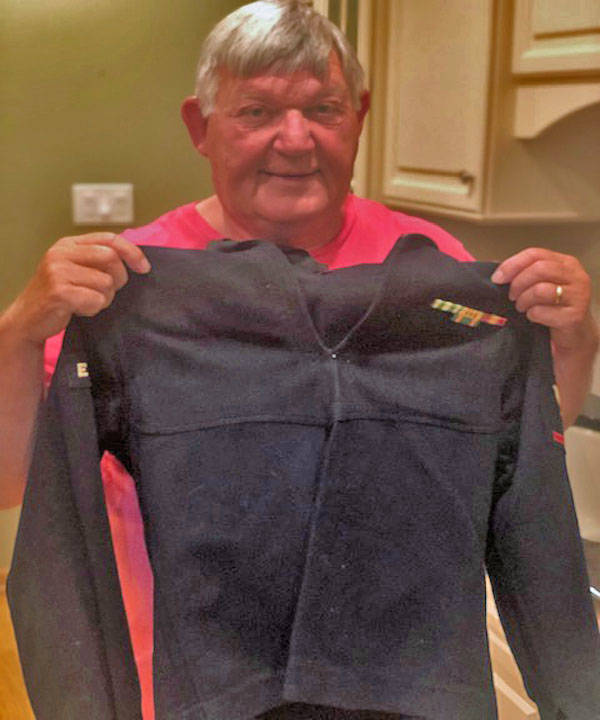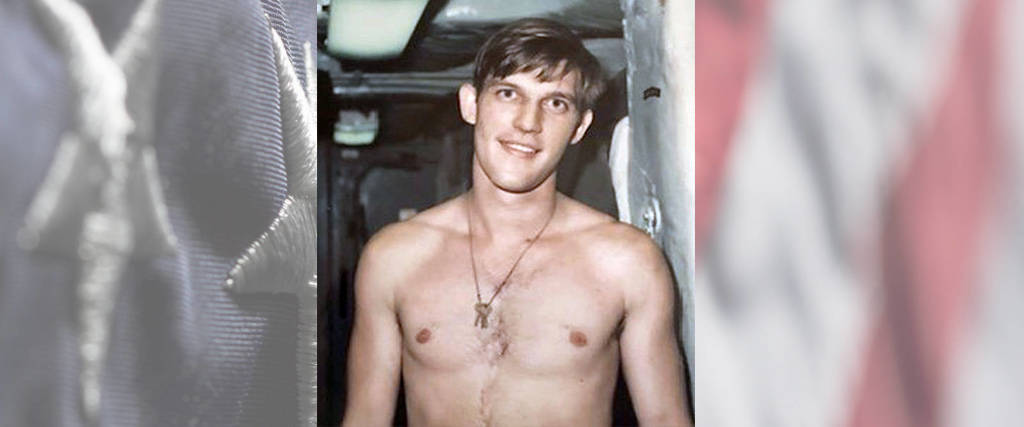U.S. Navy Vietnam War Darien, IL Flight date: September, 2019
By Charlie Souhrada, Honor Flight Chicago Veteran Interviews Volunteer
Terry Cable was born January 9, 1949, in Johnstown, Pennsylvania. His parents, Harry and Jane, raised Terry and his younger sister, Barbara, in the heart of farm country, near other members of the extended Cable family. Summers were spent playing sports, working at his great uncle’s farm and doing chores around the home. Terry remembers enjoying a succession of dinners most evenings, starting at his home around 4:30 p.m., moving to one grandmother’s at 5 p.m., then to his other grandmother’s at 5:30 p.m. “When I was growing up, they made all the dinners. They were great cooks!”
Life became chaotic during his final school years when Terry went to four different high schools in a span of four years. “My dad worked in transportation and he kept getting transferred,” he explains. “We went from Johnstown, to Pittsburgh, back to Johnstown, back to Pittsburgh and eventually to Chicago. I started my senior year in Pennsylvania and halfway through, I ended up going to Hinsdale Central High School and graduated in 1966.”
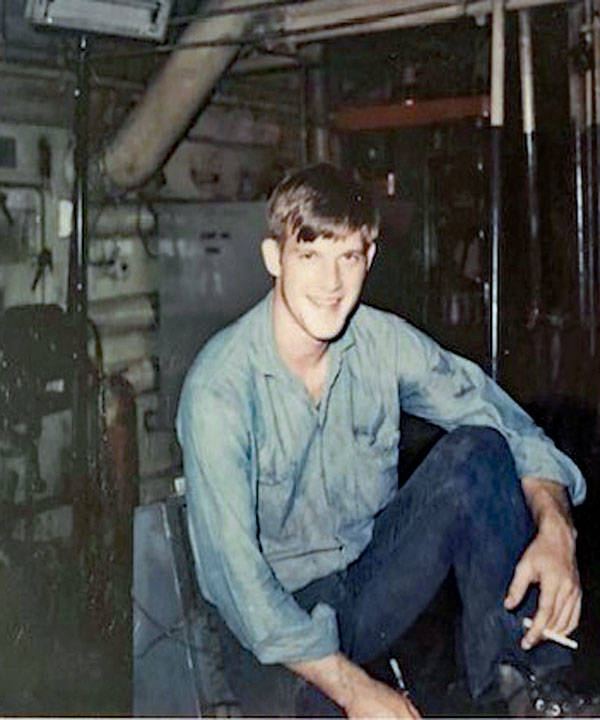
The experience taught Terry that he could handle anything. It also taught him that he wasn’t necessarily ready for college. Instead, he went to work: first as a landscaper; then as a messenger for First National Bank in Chicago. After his 18th birthday, he got a job at the Crane Company, where his father was working. At the time, he knew the draft would come calling, so to avoid being sent to Vietnam, he enlisted in the Navy. He began his military career on December 17, 1967, exactly one week before Christmas, and took Boot Camp at Great Lakes Naval Station. Afterward, he was sent to Norfolk, Virginia, and assigned to the USS Kiowa (ATF-72), an ocean-going tug that towed targets into position for ships to hit. “The first two and a half years in the Navy were great! It was like the old television show McHale’s Navy!”
Once aboard the Kiowa, he asked for training as an engine specialist and went through a series of schools for basic propulsion and engines. “This helped me tremendously and translated into my career later in life,” he says.
On June 13, 1968, during war games at sea, the Kiowa collided with a destroyer. A “green” sailor at the destroyer’s helm misunderstood his captain’s orders and rammed the Kiowa, creating a gaping hole five feet above the waterline and 10 feet below. “We were really close to abandoning the ship,” he says. “We took mattresses and 4” x 4” timbers and heaved them into the hole to plug it. We dumped everything, our water and our fuel and the ship went out of list.” For his efforts, Terry and three other seamen earned the Navy Achievement Medal. “The chiefs above us barking all the orders got bigger medals, and I don’t know how that happened,” he laughs. “We were doing all the work!”
In fall 1969, despite his best efforts, he received orders to report to Vietnam. He shipped out to Treasure Island, California, for damage control and firefighting school. At the end of training, he flew to Hawaii, then the Philippines and eventually landed in Tan Son Nhut Airbase in South Vietnam. There, he was assigned to serve on the USS Satyr (ARL-23), a vessel equipped to repair the boats that patrolled Vietnam’s rivers and canals.
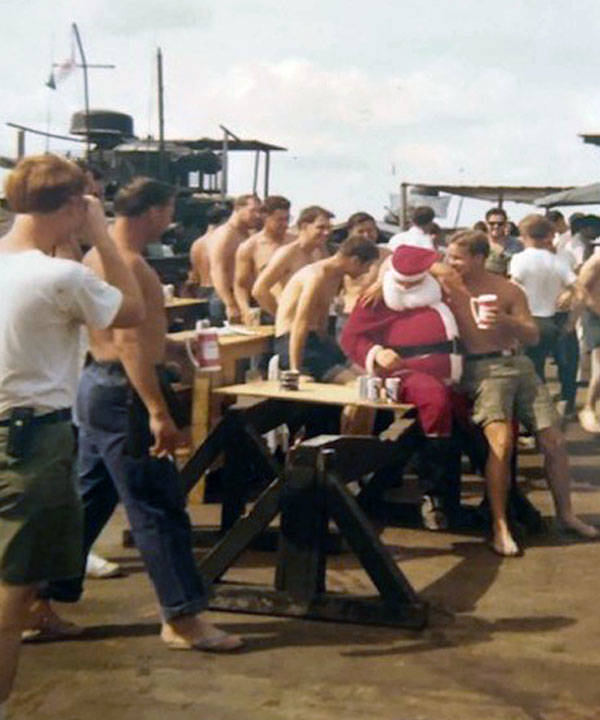
“When the boats needed repair, we were right there,” he says. “We had big cranes, and we could lift boats out of the water, rebuild engines, install new engines, whatever they needed.” After mastering the skills required to work on the engines, typically a General Motors 6-71 marine diesel, Terry learned how to test them. This required climbing down into the engine compartment and firing up the engine. It also resulted in hearing loss that follows him to this day.
A typical week included seven days of 16-18 hour days of three-section duty. This meant Terry performed watch from 8 a.m. to noon, then reported to his work station for eight hours and then went back to his watch station from 8 p.m. to midnight. “Those were long days!”
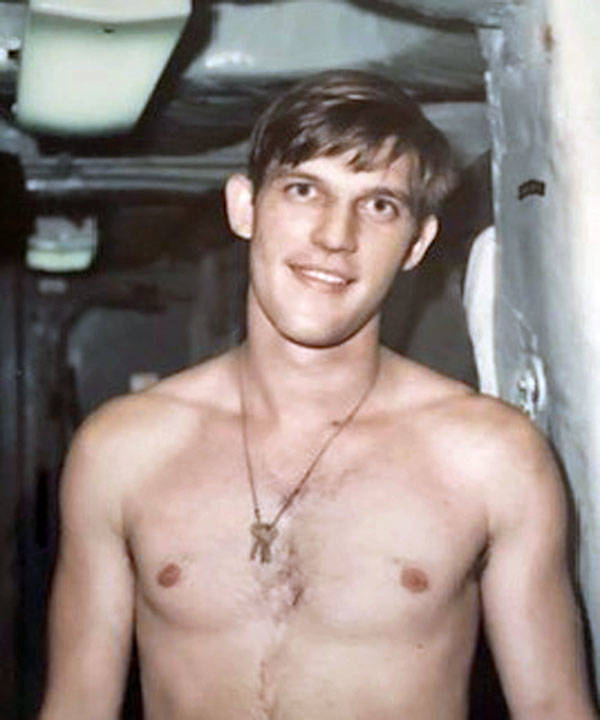
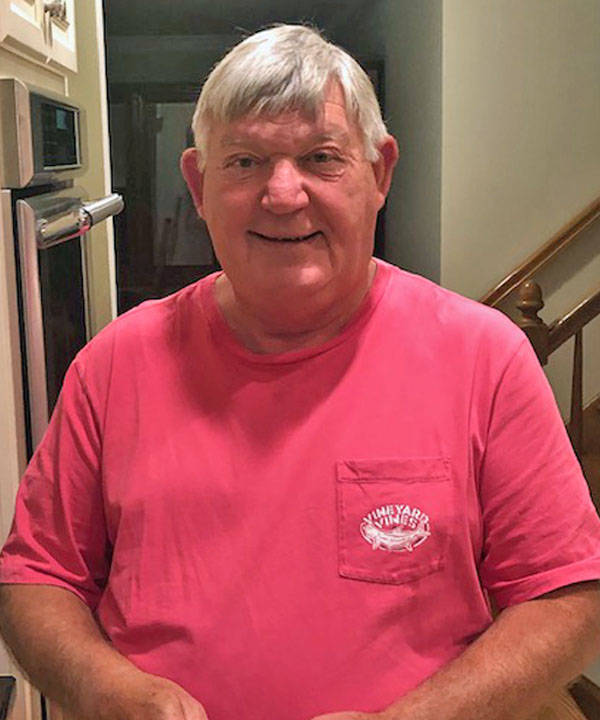
In February 1971, Terry’s tour of service was up. After eight months on the water, he was ready to leave the Satyr and go home. He took a commercial flight back to San Francisco, where he waited for final orders to return home. One day, he was called into an office with 10 other service men where they saw their return orders were included in a large stack of papers in front of an officer. The officer patted the stack of papers and said, “You see that … that gets you out. But guess what, these floors really need to be mopped and waxed.” Terry looked at the spotless floors, turned to the other servicemen and said, “Guys, we’re not getting those friggin’ papers until we do this!” The crew got to work, earned their papers and, after rescheduling a flight he missed while mopping floors, Terry flew to Chicago O’Hare where his overjoyed parents greeted him.
One night after his return home, Terry was in the lounge at Willowbrook Bowl in Willowbrook where an older gentleman overheard his conversation. “He said, I can’t help but overhear … with all your diesel experience, why don’t you come to Electro-Motive and apply for a job?” The man took a bar napkin, drew a map for directions and handed it to Terry who put it in his pocket. The next morning, he got up, didn’t shower, put the same clothes on and went to Electro-Motive where the hiring officer asked him: “do you want to start right now?” “That was on a Tuesday,” he says. “I started the next Monday and I was there for 43 years!”
Along the way, Terry used the GI Bill to take continuing education courses at the College of DuPage in Lombard and took additional supervisory courses at Illinois Benedictine in Lisle. In 1990 at 40-years-old, Terry earned his bachelor’s degree in business through a special General Motors program.
Coincidentally, he also met his wife, Barbara, through a chance meeting at the Willowbrook Bowl. “I don’t know why, but I started talking to her. Two months later we were engaged and 16 months later, in October 1972, we were married!” Together, the couple raised three sons, Michael, Keith and Dennis, who live near them.
Today, Terry is retired and loves spending time with his wife and his six grandchildren. He’s beginning to enjoy traveling with Barbara and especially enjoys speaking at his grandchildren’s schools about the purpose and meaning behind military service. “One time, I brought my Navy jumper and the medals,” he says. “I can’t fit into the jumper anymore, but during the talk, I put it on one of my grandsons, along with the medals and you should have seen all of their faces! It makes the experience real for them!”
